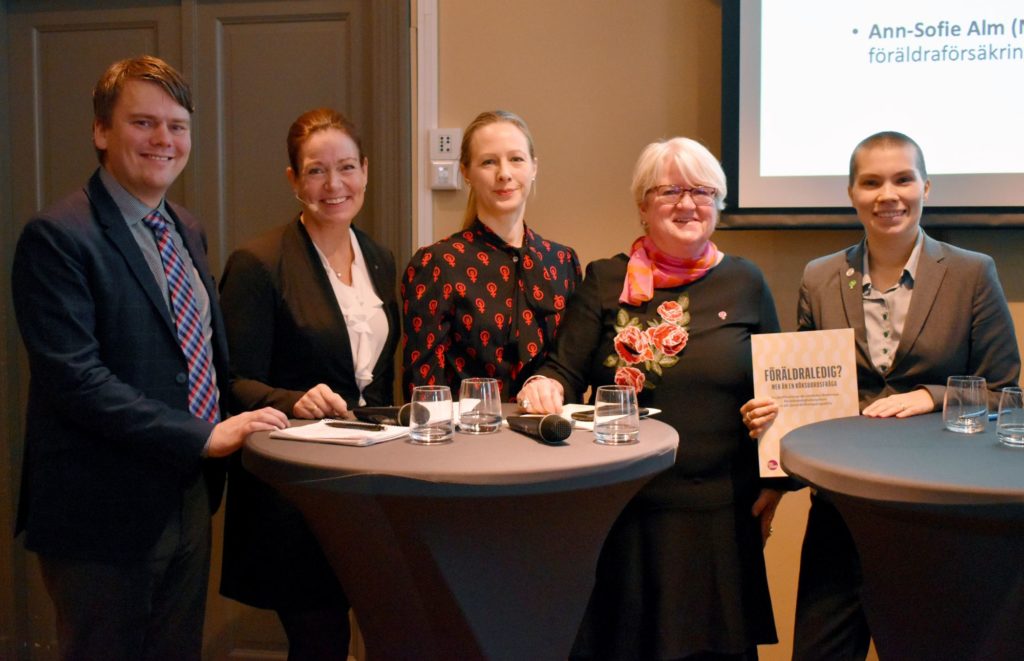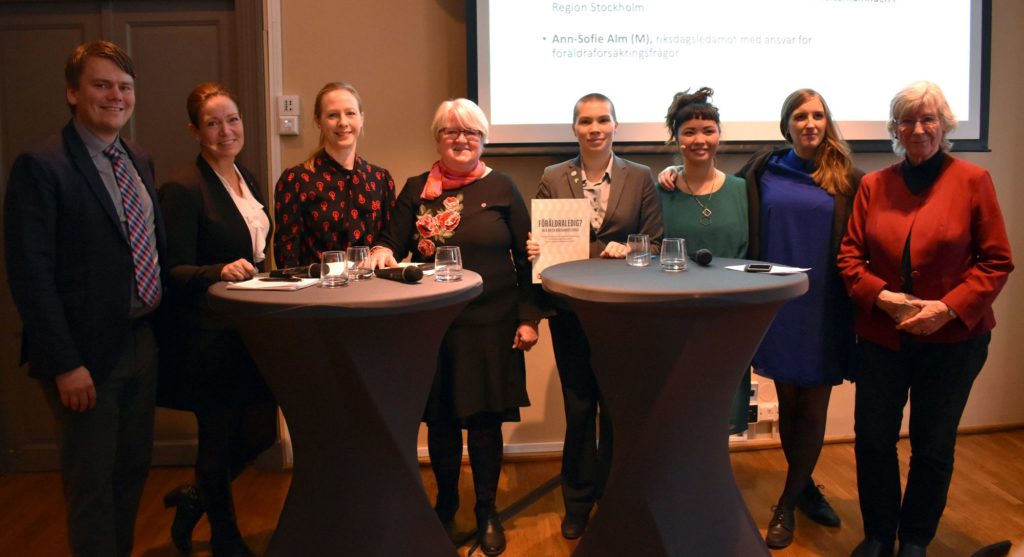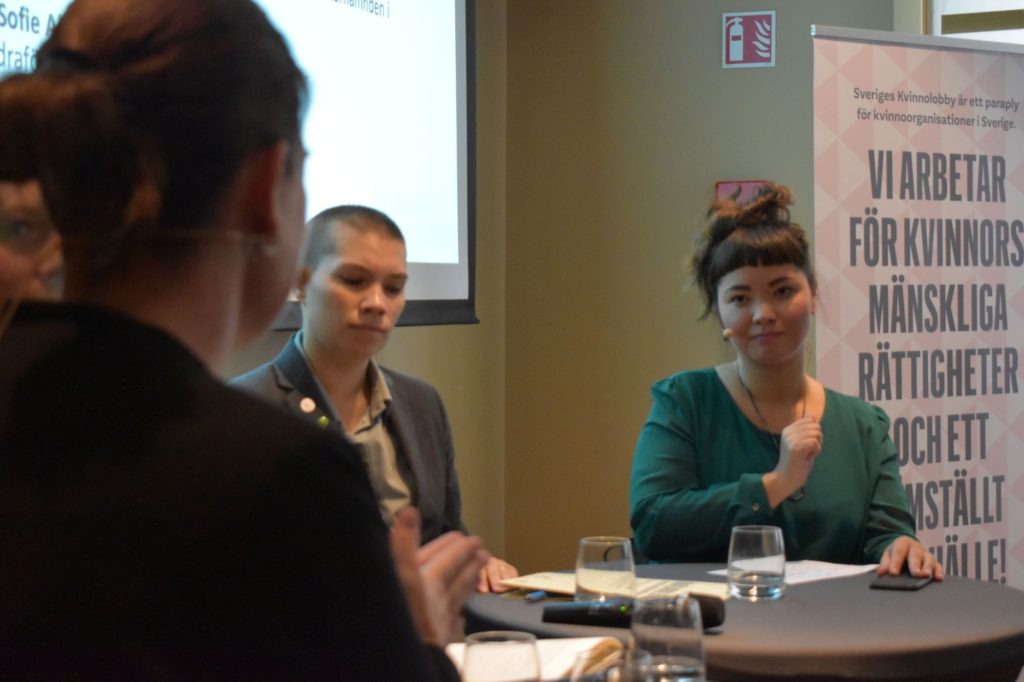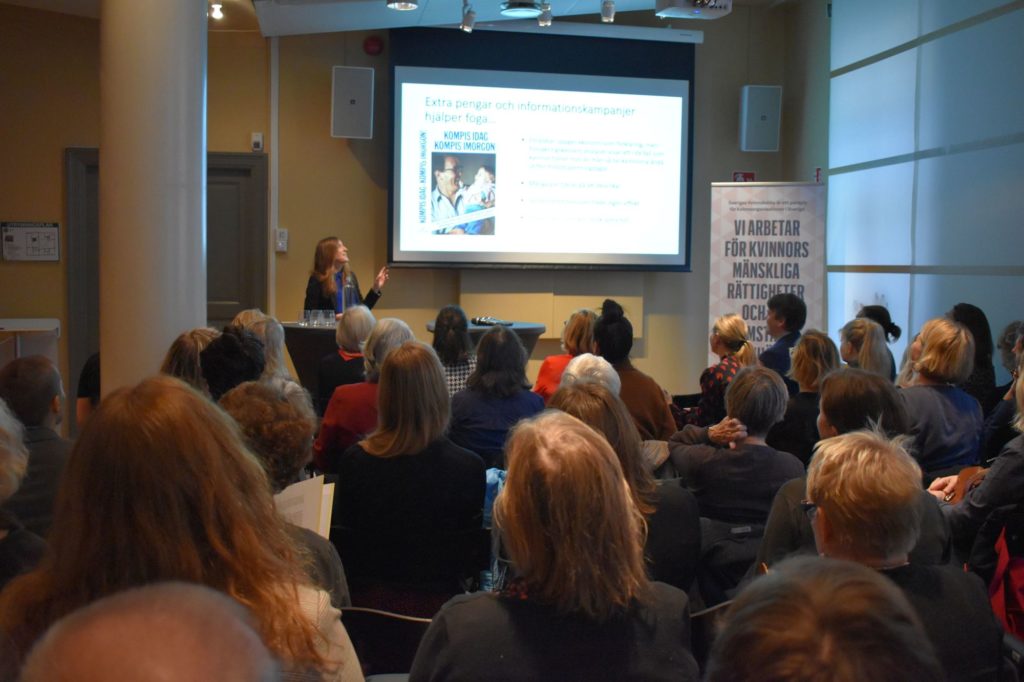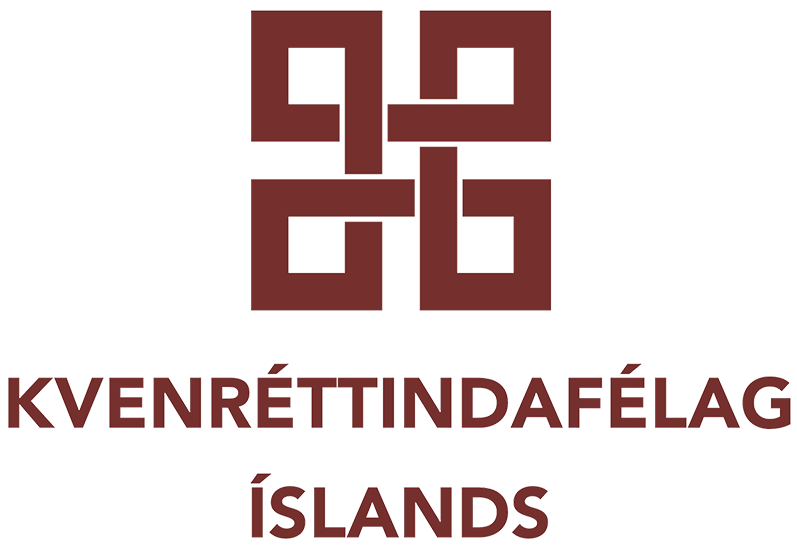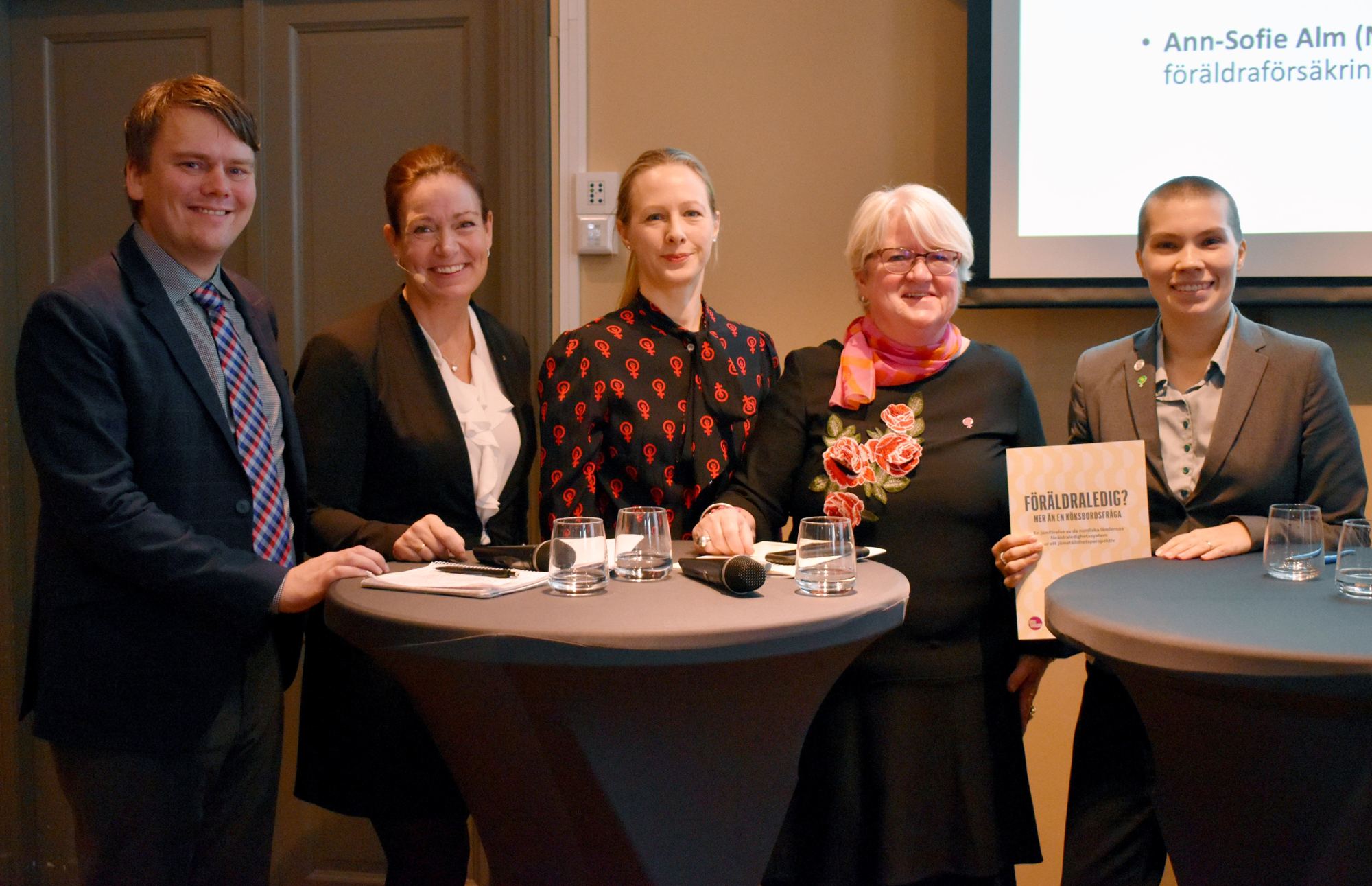
On 22nd October 2019, the Nordic women’s organizations Swedish Women’s Lobby, Norwegian Women’s Lobby and Icelandic Women’s Rights Association held a seminar on gender equal parental leave in Stockholm.
The organizations presented Föräldraledig? Mer än köksbordsfråga, a new report on parental leave systems in the Nordic countries and Andrés Ingi Jónsson, member of Althingi for Left-Green Movement, presented the upcoming reform of the parental leave in Iceland.
A recording of the meeting can be viewed here.
Paid parental leave and publicly financed childcare are very important reforms for women’s participation in the labor market and have contributed to economic growth in the Nordic countries. There is, however, still a long way to go before we reach economic equality between men and women. Women more often work part time; the gender pay gap is substantial in all our countries and many women struggle to get by because of their low pensions.
The inequality can to a large extent be explained by the fact that women take more responsibility for unpaid work, especially after they had their first child. A Swedish study showed that 15 years after the first child was born, the male-female gender gap in income increased by 32 percentage points. How the parental leave is divided play an important role for the division between paid and unpaid work in the long term. Although the Nordic countries are moving in the right direction, mothers continue to take much more parental leave than fathers and spend more time on unpaid work.
Our proposals in short:
The parental leave benefit should be divided equally between parents
When dads take parental leave the division between paid and unpaid work become more equal which supports more equal chances for women and men to succeed in work life. The only successful way of increasing men´s parental leave has so far been to earmark days for dads, so called “daddy quota”. The parental leave should be divided equally between parents to reach gender equality at home and in the labor market.
The parental leave must be long enough to avoid a care gap
The parental leave must be long enough to cover the child´s need for care from both parents and the mothers need for recovery. The leave must be long enough to make sure that women have enough time to recover after pregnancy and birth and give the fathers the same opportunity to stay at home and attach to their child. All children should have the right to public financed childcare when the parental leave ends to avoid “care gaps”.
Parental leave benefits should be income-based
The parental leave should be income -based at levels that makes it possible for both parents to stay at home without a substantial economic loss. For people who have not worked before the leave there should be a minimum benefit that would give an acceptable economic standard

